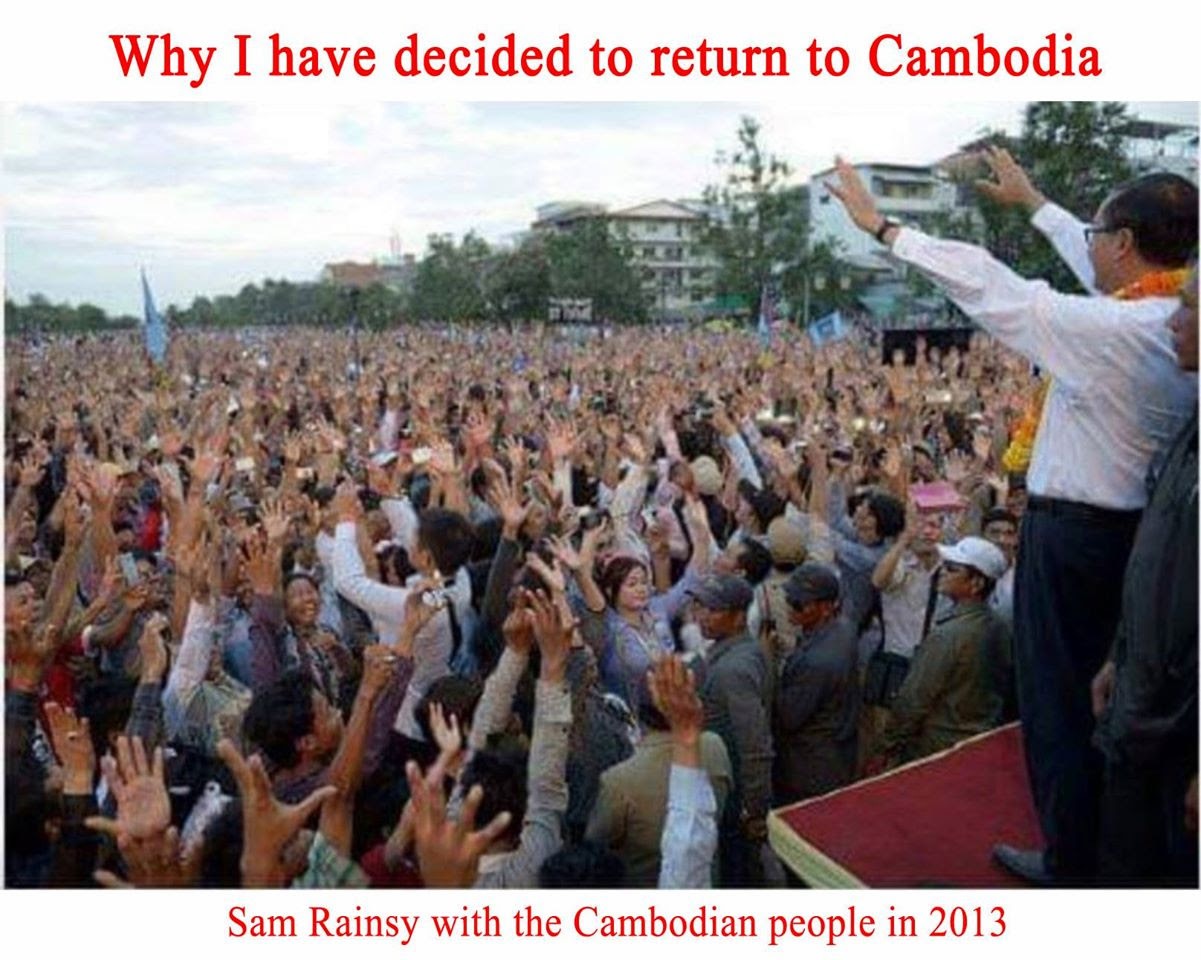On 7 September, Sam Rainsy, co-founder and acting president of the Cambodia National Rescue Party, Honorary president of the Nonviolent Radical Party Transnational Transparty and Honorary Member of the Global Committee for the Rule of Law “Marco Pannella” issued the following statement from Paris, where he lives in self-imposed exile.
Exile has long been part of my life; even though painful it is a lesser evil than the risk of prison or a violent death which permanently hang over Cambodia’s opposition leaders.
I have decided to return to my country this year despite the large numbers of legal convictions and arrest warrants against me. My 25-year struggle for democracy against an authoritarian regime led by former Khmer Rouge members has led to several assassination attempts and ongoing political and judicial persecution against me. But I must return to safeguard and develop what I have accomplished, namely the launching of the first opposition publications, calls for the first popular protests for freedom and social justice, organization of the first industrial strikes, creation of the first workers’ free trade union, and the foundation of the first parliamentary opposition party, which collected nearly half of the popular votes at the last elections in which it was allowed to participate.
I have chosen November 9 as my date of return. This is both Cambodia’s Independence Day and the date of the fall of the Berlin Wall, an event marking recovery of liberty in the eyes of the world. Since 2017, Cambodia has been mired in a serious political crisis which, in the context of growing influence of China over the country and heightened regional tension, risks worsening with international consequences. A continuing shift to totalitarianism has seen the arbitrary dissolution of the only parliamentary opposition party, the Cambodia National Rescue Party (CNRP), the arrest and continuing detention of its leader Kem Sokha, and severe repression of political opponents, civil society and independent media. This lurch into authoritarianism has been condemned by the United Nations, the community of democratic nations and international human rights organizations.
The sudden return to a single-party system following the dissolution of the CNRP and the human rights abuses that have accompanied it are a violation of the Paris Peace Agreements of 1991 which lay down a system of “liberal and pluralist democracy” for Cambodia, while ensuring “authentic, free and fair elections” and guaranteeing the respect of the Cambodian people’s fundamental human rights.
I have decided to return to attempt to halt and reverse this embrace of authoritarianism. But to seek to re-establish democracy in the face of blind power which refuses dialogue with an opposition of which it denies the very existence, I have only one lever: a direct appeal to the people to use “People Power” as in the Philippines in 1986. I am convinced that the long-suffering and silenced Cambodian people will massively and peacefully rise to demand a democratic change that it can’t secure at the ballot box since the regime in place refuses to hold any real election with opposition participation.
I ask all friends of Cambodia, and notably the signatory countries of the Paris Peace Agreements*, to do everything in their power to dissuade the Phnom Penh regime from using violence against a population which seeks simply the respect of its rights and freedoms guaranteed by an international treaty which remains in force.
* The following eighteen countries signed the Paris Peace Agreements on Cambodia on 23 October 1991: USA, Soviet Union/Russia, China, France, United Kingdom, Canada, Japan, Australia, India, Yugoslavia/Serbia, Indonesia, Thailand, Philippines, Malaysia, Singapore, Brunei, Vietnam, Laos. Three other countries subsequently joined the list of signatories: Germany, The Netherlands and Poland.
Sam Rainsy

